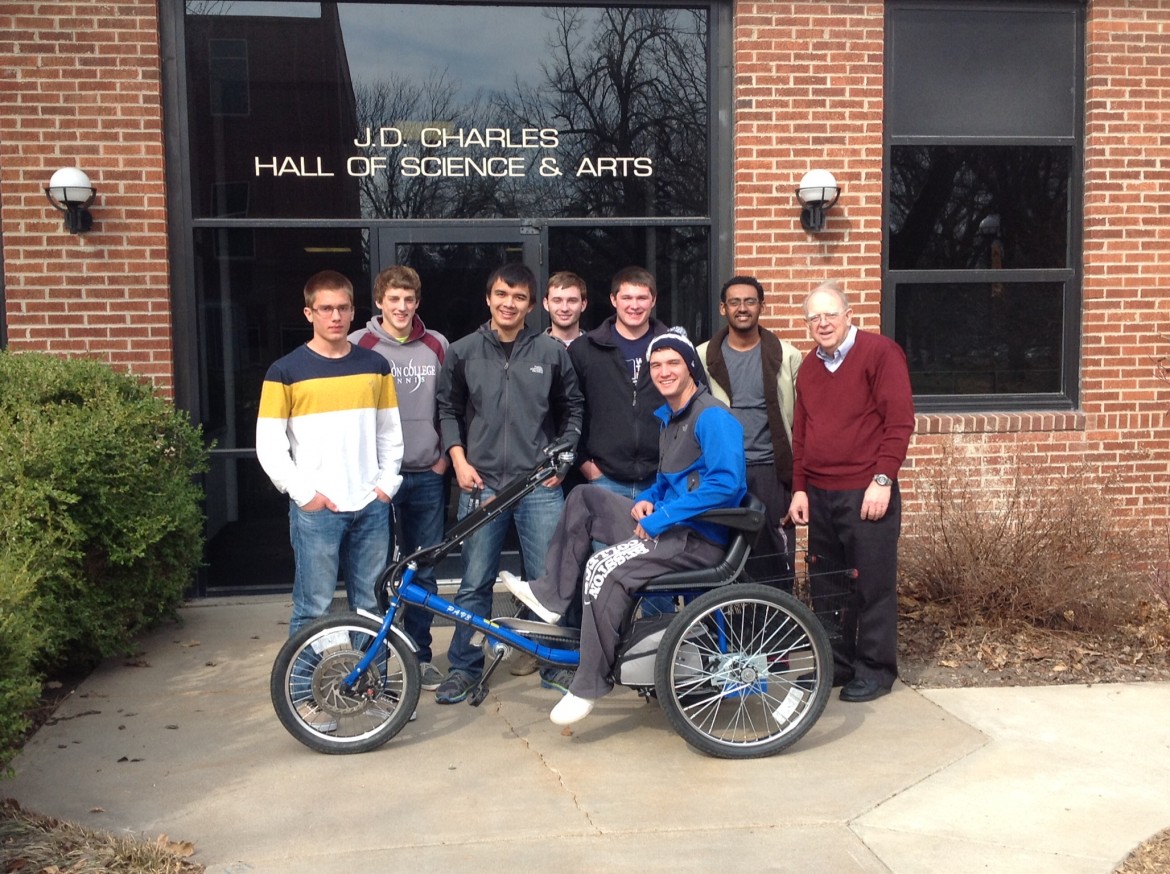When Hesston College physics instructor Nelson Kilmer was shopping for a new vehicle in late 2013, he had one goal in mind – to lower his environmental impact.
He achieved his goal with the Ford C-Max Energi plug-in hybrid, which is charged off of solar panels producing electricity for his house. The solar powered nature of his vehicle has meant only one fuel purchase since December 2013, an average of 99 miles per gallon of fuel over the last three months and a dramatic cut in the emissions his travels produce.
Kilmer’s dedication in lowering his environmental impact influences his students every year to look for ways to reduce their own footprint, and their solutions will be highlighted during Hesston College’s Earth Day celebration from 10 a.m. to 2 p.m., Thursday, April 24, on the Hesston College campus.
The celebration will focus on changes in vehicle technology and transportation alternatives from the earliest Model T cars to today and explain the realities of each vehicle’s environmental impact.
Students will present research data on the impact of vehicles offered in today’s market. For example, a car averaging 25 miles per gallon of fuel produces 12,000 pounds of emissions per year while a hybrid vehicle that relies on gas to charge the battery produces 7,000 pounds per year. A plug-in hybrid – the latest advancement in vehicle technology – produces only 1,000 pounds of emissions per year, not to mention the cost in fuel savings due to the fact that the car can be charged directly through electricity.
Kilmer’s Physics II students have also spent the spring semester building a personal activities vehicle – a solar powered tricycle that offers further transportation and cost savings options. Several vehicle options including the trike, Kilmer’s vehicle and a Ford Fusion Hybrid with a representative from Mel Hambelton Ford (Wichita, Kan.) will be on display as students present their research and the benefits and downfalls during the come-and-go event. The vehicles will be featured in a parade across campus at 11:30 a.m.
Other event highlights include solar cooked snacks, recycling options and light bulb energy savings. The event is free and open to the public. Set up will be on the campus lawn in front of Charles Hall weather permitting. In case of inclement weather, the event will be moved inside Charles Hall.


